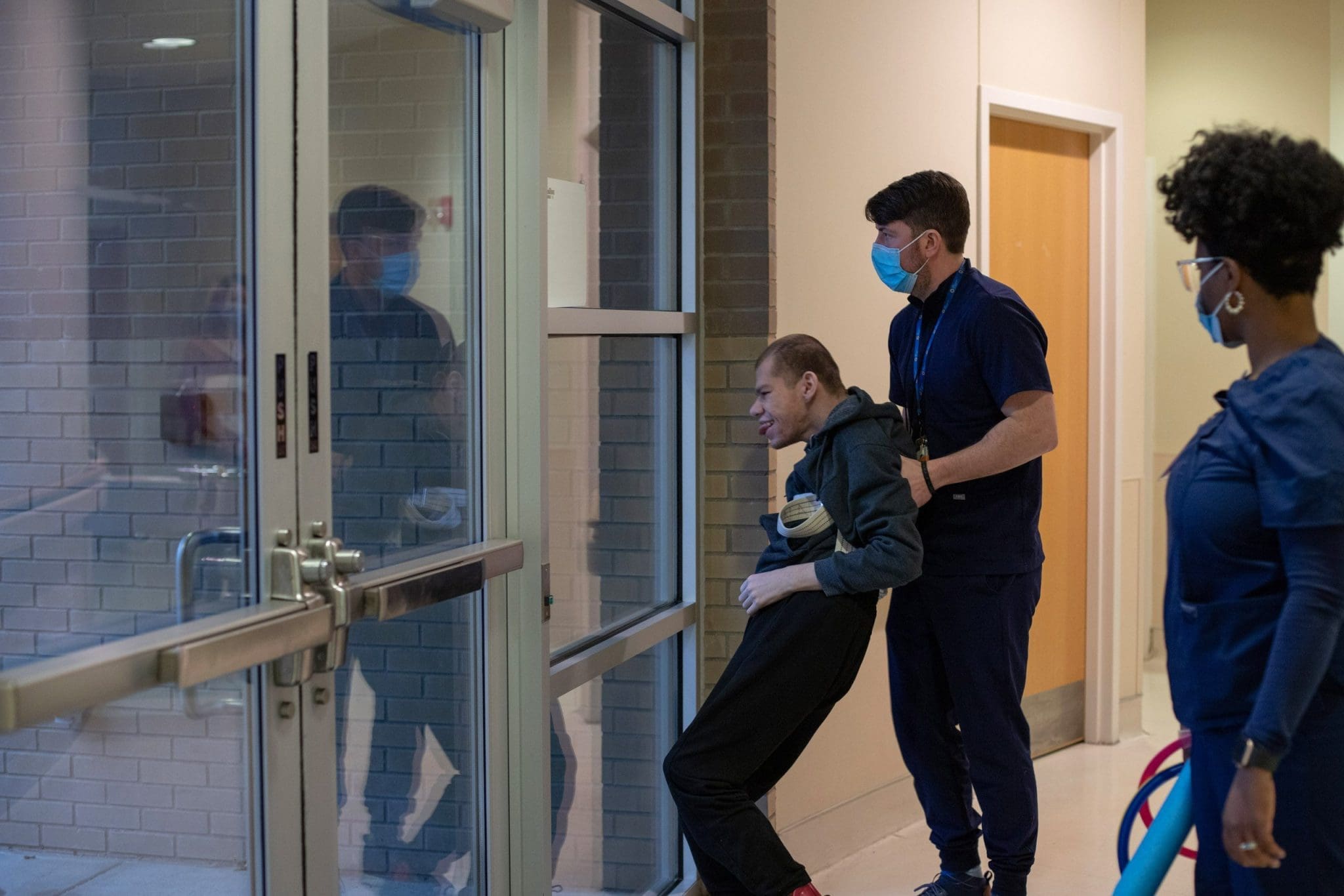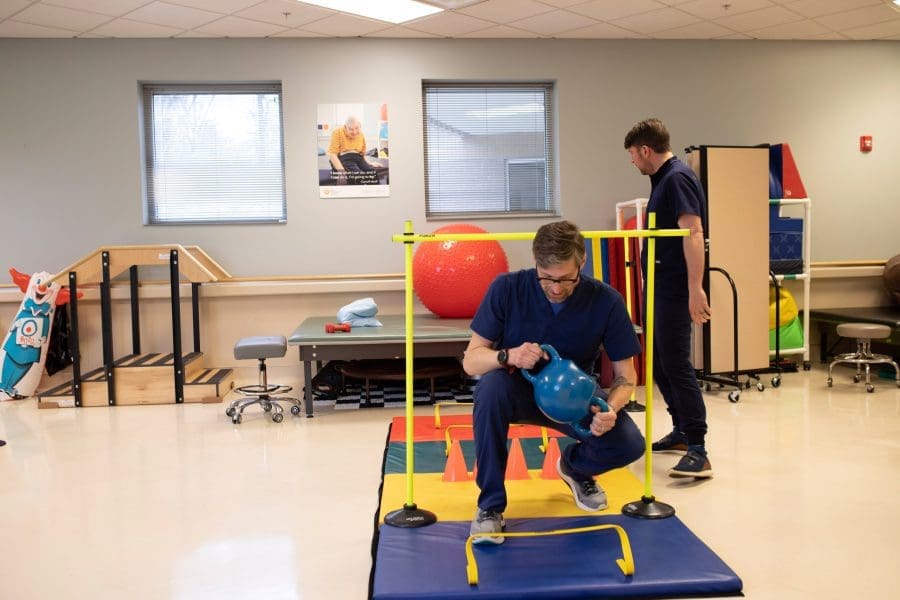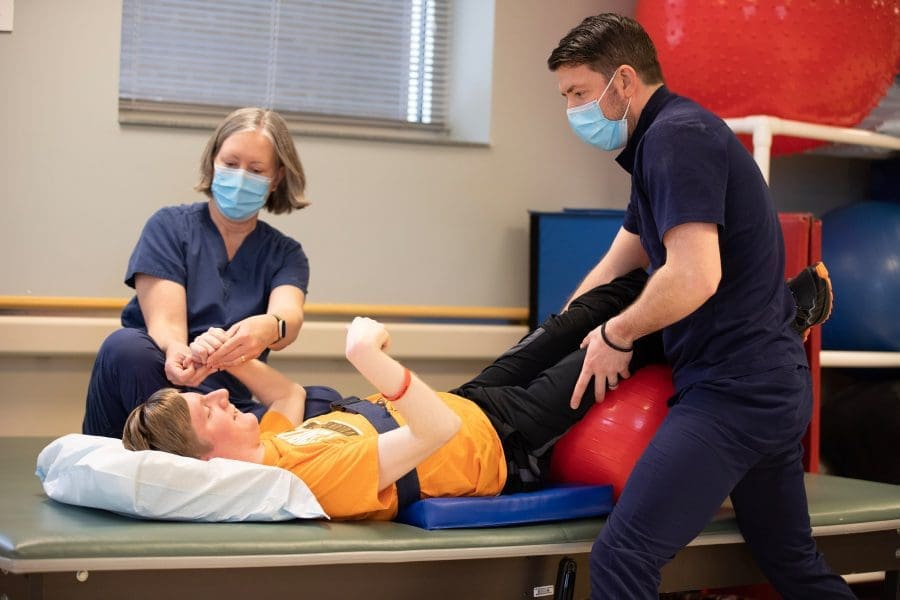How Therapy Helps Improve Daily Life Skills for Individuals with IDD
For individuals with Intellectual and Developmental Disabilities (IDD), everyday tasks that many take for granted—such as getting dressed, preparing meals, or engaging in conversations—can present unique challenges. However, with the right therapy and support, individuals with IDD can gain greater independence, confidence, and the skills needed to navigate daily life successfully.
At Kramer Davis Health, we provide a comprehensive, transdisciplinary approach that includes occupational therapy, speech therapy, physical therapy, and behavioral support to help individuals build essential life skills.
The Role of Therapy in Daily Life Skill Development
Different types of therapy focus on specific skill sets that support independence, social interactions, and overall well-being. Here’s how therapy plays a vital role in enhancing daily life skills for individuals with IDD:
Occupational Therapy (OT) – Developing Independence
Occupational therapists work with individuals to develop fine motor skills, sensory integration, and activities of daily living (ADLs) to promote independence.
Examples of Skills OT Helps With:
– Dressing and grooming (buttoning a shirt, brushing hair, tying shoes)
– Using utensils to eat independently
– Writing, drawing, and other hand-eye coordination tasks
– Sensory regulation to improve focus and engagement in daily activities
Example: A young adult with Cerebral Palsy (CP) learns adaptive techniques to brush their teeth and prepare simple meals, increasing their self-sufficiency.
Speech Therapy – Improving Communication & Social Interaction
Many individuals with Autism Spectrum Disorder (ASD), Down syndrome, Cerebral Palsy (CP), or Global Developmental Delay (GDD) face challenges with verbal and non-verbal communication. Speech therapy provides techniques and tools to enhance communication skills and foster social connections.
Examples of Skills Speech Therapy Helps With:
– Verbal communication and articulation
– Understanding and using alternative communication tools (AAC devices, sign language)
– Social skills such as turn-taking and making eye contact
– Learning how to express wants and needs effectively
Example: A teenager with Down syndrome improves their ability to communicate in social settings, helping them make friends and gain confidence in everyday interactions.
Physical Therapy (PT) – Enhancing Mobility & Motor Skills
For individuals with neuromuscular disorders, Cerebral Palsy, or other physical challenges, physical therapy focuses on improving strength, balance, and coordination to support mobility.
Examples of Skills PT Helps With:
– Walking, running, and navigating different surfaces safely
– Strengthening core muscles to improve posture and sitting balance
– Coordination exercises to enhance movement efficiency
– Adaptive strategies for using mobility aids (walkers, braces, wheelchairs)
Example: A young adult with Fragile X Syndrome gains the ability to walk longer distances without assistance, allowing for greater participation in community activities.
Behavioral Therapy – Supporting Emotional Regulation & Coping Strategies
Behavioral therapy, including Applied Behavior Analysis (ABA) and cognitive behavioral interventions, helps individuals with IDD develop self-regulation skills, manage emotions, and improve social interactions.
Examples of Skills Behavioral Therapy Helps With:
– Coping with changes in routine
– Reducing self-injurious or aggressive behaviors
– Learning how to handle frustration in healthy ways
– Enhancing self-awareness and emotional regulation
Example: A young adult with Pervasive Developmental Disorder – Not Otherwise Specified (PDD-NOS) learns deep breathing techniques and visual schedules to manage anxiety in new environments.
How Therapy at Kramer Davis Health Supports Lifelong Growth
At Kramer Davis Health, we recognize that therapy is not just about short-term gains—it’s about creating a foundation for lifelong independence and success. Our transdisciplinary care model ensures that medical professionals, therapists, and caregivers work together to develop a personalized plan that meets each individual’s needs.
Why Families Choose Kramer Davis Health for Therapy:
✔ Comprehensive, team-based approach to care
✔ Sensory-friendly environment to reduce anxiety during sessions
✔ Collaboration between therapists, doctors, and caregivers for the best possible outcomes
✔ Customized therapy plans tailored to the individual’s strengths and challenges
Want to see our therapy spaces in action? Visit our Patient Education Page to take a virtual tour and explore our therapy services.
Take the Next Step: Help Your Loved One Gain Independence
If you’re looking for occupational, speech, physical, or behavioral therapy for an individual with IDD, Kramer Davis Health is here to help.
Request a Tour of Kramer Davis Clinic – See our therapy programs in person.
Become a New Patient – Start a therapy plan tailored to your loved one’s needs.
Together, we can build confidence, independence, and brighter futures for individuals with IDD!


